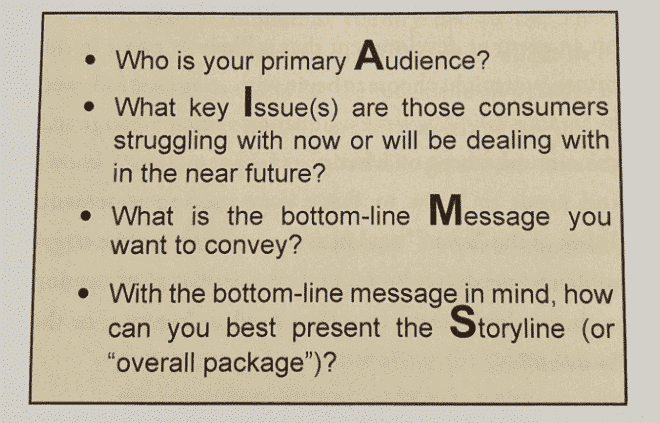How to write like an intelligence analyst?
Related:
What
do intelligence analysts need to be aware of when writing an intelligence
report?
The purpose of writing is to better report on issues. In
today's information age, where people are overwhelmed by numerous messages, it
becomes especially important for an article to give readers access to high-value
information in a short period of time, so keep in mind that the goal of writing is
to be clear and concise.
The prerequisite for writing is to identify the
audience, grasp the key issues that the audience struggles to solve, and sort out
the solutions and plausible storyline provided by the writer.
Know
your AIMS
Audience: What is the primary
audience for the article?
Issues: What is the key issue
that the article addresses?
Message: What is the key
message of the article?
Storyline: How can you better
construct a storyline?
AIMS is an easy way to conceptualize the structural
building blocks of an analytical paper. Ideally, you can even complete (or get close
enough to) the first three parts before you start writing the final product.
Only after you have identified your audience, narrowed down the key issues
they are grappling with, and know the bottom-line message you need to convey to
them, can you begin writing.

Answer the golden questions
You may be familiar with the 5Ws
- who, what, when, where and why. Analytical writing compresses some of these and
expands on others. The approach I learned uses five "golden questions" that reflect
the way we find and absorb information. Answering these questions will enable you to
isolate the message and build a storyline.
Context: What is
going on? What is the event or development you are writing about? This question is
often difficult to answer because it is usually wrapped up in context - but then,
you are an analyst.
Cause: What are the key forces or
drivers of how things are going?
Development: Analytical
writing is forward-looking, not just descriptive and reportable. How will things
unfold, and can you assess likely outcomes or future developments?
Impact: What
is the benefit of your writing to the reader? Or what can your article help the
reader?
Use: How will we use it? The intelligence community
struggles with this, focusing rightly on the perception of policy prescriptions. But
good opportunity analysis is not prescriptive at all; it simply highlights the
options available to policymakers.
How to write articles
clearly
1. Express the point of your article in layman's terms
and with clarity. As an analytical writer, your job is to help readers understand,
accept and remember key judgments that are often difficult to make.
2. Your
essay needs to reflect key paragraphs, statements, and main ideas.
3. After
writing your essay, you need to do redundancy elimination.
· Cut redundant
language: repeat the same ideas in different words.
· Cut unnecessary
nonsense: usually amounts to throat clearing.
· Cut unnecessary details:
such as irrelevant and precise numbers, names of individuals who have been mentioned
but are not relevant to the larger story, statements that lack analytical meaning,
etc.